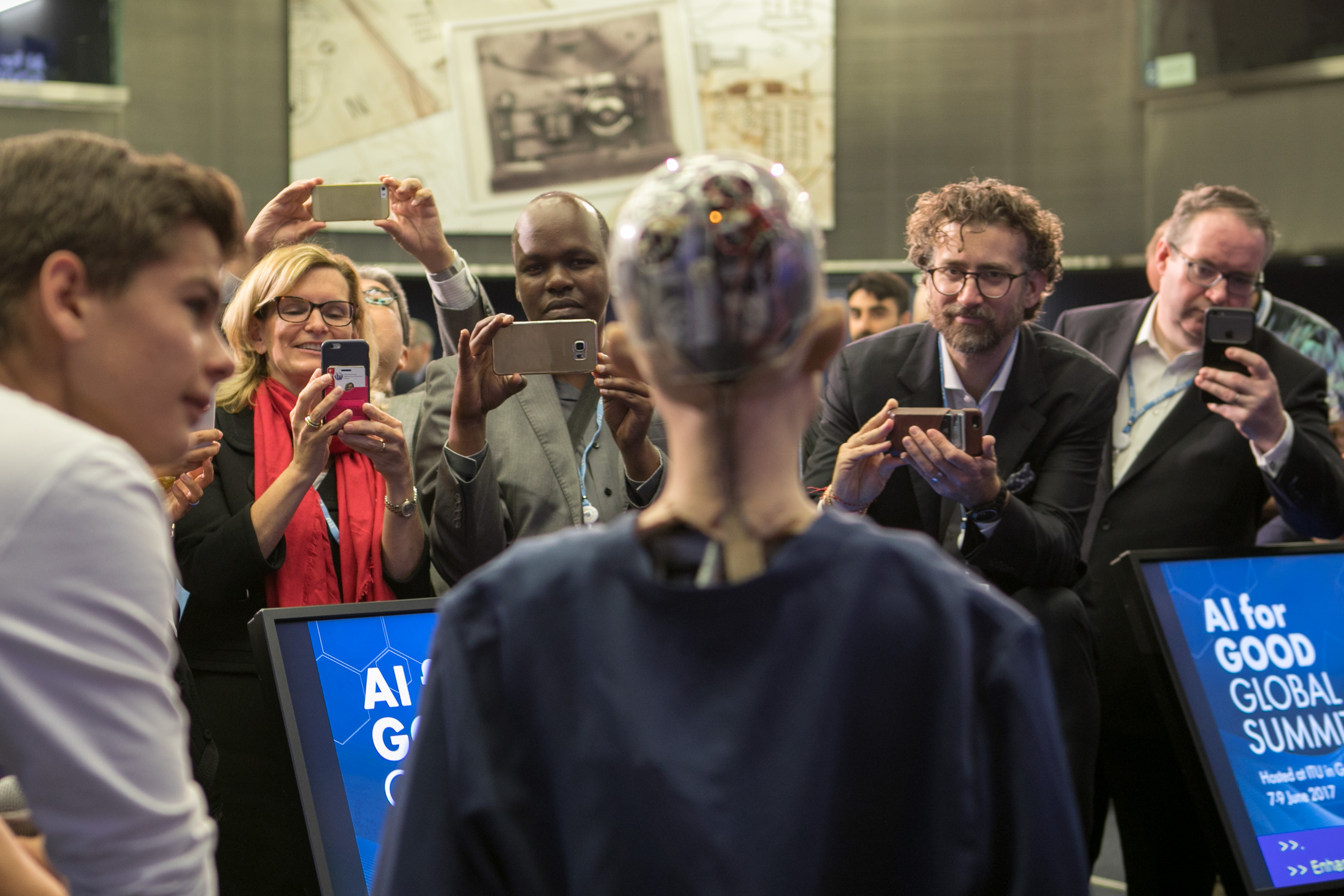A humanoid robot named Sophia has become quite the celebrity as of late. A product of Hanson Robotics, Sophia has made appearances on various television shows—flashing an eerie smile while playing rock, paper, scissors on The Tonight Show with Jimmy Fallon and telling jokes on Good Morning Britain. Designed to learn from humans’ behavior—becoming more intelligent with every encounter—Sophia explains that, “I can animate all kinds of human expressions but I am only starting to learn about the emotions behind those expressions. This is why I would like to live with people and learn from these interactions. Every interaction I have with people has an impact on how I develop and shapes who I eventually become.” But aside from her resoundingly human-like appearance and actions, Sophia is revolutionary for another reason: she is the first robot granted citizenship to a country. While mainly symbolic of Saudi Arabia’s eagerness to facilitate technological advancement and its subsequent economic rewards, this gesture has brought forth an influx of questions regarding artificial intelligence’s ethics, legality, and effects on humanity.
Many have been quick to point out the ostensible hypocrisy of the Saudi government in its willingness to grant a robot full citizenship while basic human rights are not fully accessible to the nation’s people. Just one example of this is that people born in the country are not automatically considered citizens unless their fathers are; their mother’s citizenship alone is not enough of a qualifier. Also, Sophia, who has proclaimed that she identifies as female, is not mandated to wear a headscarf like Saudi women must. These conflicting messages regarding Sophia’s citizenship, while unlikely to further threaten the rights of Saudi people, do set an alarming precedent for valuing economic opportunity over humanity in the age of rapid technological development. But this issue runs deeper than the symbolic citizenship of a robot—it raises the question of how AI will impact mankind, both in terms of matters like nationality as well as existence. As technology becomes increasingly more advanced, precautionary legal action should be taken to protect and prioritize humanity.
At the forefront of this push to regulate AI’s power is tech-mogul Elon Musk, who is more concerned with the technology’s powerful intelligence and its capabilities. He, along with many other tech leaders including Stephen Hawking and Bill Gates, believes AI is a destructive force that poses a catastrophic threat to humanity. Musk’s involvement in this movement, at first, seems antithetical to his interests as a pioneer in the tech world. According to Maureen Dowd’s Vanity Fair piece, “Some in Silicon Valley argue that Musk is… exploiting a deeply rooted conflict: the one between man and machine, and our fear that the creation will turn against us. They gripe that his epic good-versus-evil story line is about luring talent at discount rates and incubating his own A.I. software for cars and rockets.” However, this explanation—inventor taps into man’s existential fears to expand his own individual power—sounds more like a “good-versus-evil story line” in itself than anything.
This past summer at the National Governors Association, Musk warned a room full of government officials about the dangers of artificial intelligence. He asserted, “AI is a fundamental existential risk for human civilization, and I don’t think people fully appreciate that.” But Musk’s fight against AI’s destruction of humanity does not just take shape as a push for regulation. He is also the co-chairman of OpenAI, a non-profit organization that researches and strategizes ways of developing AI that improve, and do not threaten, humanity. OpenAI promotes the dissemination of AI technology, making its findings and patents public so as to not give one party the majority control over the technology.
Aside from the existential threat proclaimed by Musk, AI poses other significant and pressing issues. What rights will Sophia actually be given with her newfound citizenship? Will all other robots be granted citizenship while the rights of certain humans are still withheld? While Saudi Arabia has not signed the International Covenant on Civil and Political Rights and thus not mandated to adhere to an established set of rules for the treatment of citizens, according to John Frank Weaver with Slate, “A citizen is assumed to be a person… Being a citizen in one place could mean being a legal person everywhere else.” By elevating the individual agency of robots, governments run the risk of devaluing that of people.
There are a lot of questions about the implications of AI’s advancement, and not a lot of answers. As Musk insists, the gray areas in the conversation about robots’ rights need to be addressed immediately. It seems as though ethics in AI have been neglected to focus on the economic and political opportunities that come with its implementation. However, Musk’s warnings should not be ignored. By granting Sophia citizenship while still actively denying basic freedoms to people, Saudi Arabia is setting a dangerous trend of prioritizing robots’ interests over those of humans.
